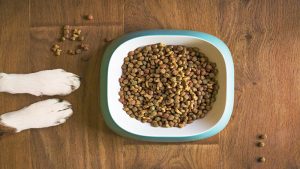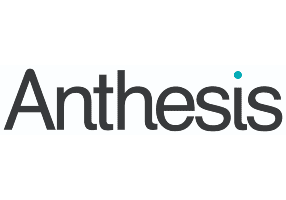
Full traceability includes knowing the source of every ingredient, how they were used within the product and where the final product was sent. Were they shipped to a distributor, retailer or end-user? There is also a growing requirement to track product packaging once the consumer uses the product. There are several reasons why pet food manufacturers must record this data.
Product Recall
If a piece of barbed wire, perhaps ingested by a cow, makes its way into a finished product, the manufacturer needs to identify the ingredients from every products’ batch and lot number and track it back to the source.
The risk of recall is often seen as a reason to ensure that the IT systems deliver the level of traceability required. While human food recalls hit the headlines, there were also pet food recalls within the UK last year. In June 2021, there was a recall over some hypoallergenic cat food products because of safety concerns. In February 2022, Dog Choice UK recalled frozen dog food. It showed the importance of tracking the source materials to the supplier and where the finished goods were sent.
The process is often time-consuming, especially if the pet food manufacturer relies on a combination of disparate systems and Excel spreadsheets. There is a better way. Anthesis for Pet Food, powered by Infor M3 CloudSuite Food & Beverage, delivers an industry-specific ERP for the pet food manufacturing industry. Its features and functions include Iot traceability to ensure the manufacturers’ production is optimised.
Audits and Regulation
While recalls do occur, audits and information demands, especially by the larger supermarkets, are more frequent. If there is a suspected faulty batch, the manufacturer will need to confirm every ingredient’s source, quality, and destination. Failure to have the ability to inform supermarkets could lead to a loss of business, especially if the manufacturer is producing own-label brands. The right solution can save days of person-hours to provide the requested information. It is a worthwhile investment.
Pet food manufacturers must also adhere to regulations. Issues with a finished product, can result in an investigation from the National Food Crime Unit, the law enforcement function of the Food Standards Agency (FSA). The manufacturer’s business will be severely disrupted without rapid access to detailed information.
Supply chain
Today’s supply chains are more fragile than ever. Global supply chains are in flux compounded by the impacts of the Ukraine, Covid and Brexit. Understanding where raw materials are sourced can help identify risks to production. Insight from a traceability solution tied into production forecasting identifies risks well ahead of time, enabling manufacturers to take preventative action in time.
Quality
Traceability also helps manufacturers with quality control. Suppose an ingredient or product batch fails a quality control test. The ability to trace ingredients and quarantine them in a timely fashion allows the quality issue to be confirmed and the situation rectified before it escalates. The ability to retain lot and batch traceability in pre-production through production to customer shipment helps ensure that quality checks have greater validity.
Brand reputation
While the risk of a recall exists, many retailers, customers and even regulators will want assurance that a manufacturer has the traceability required. In the past, they may just have expected that to happen. Today, the reputational risk to brands and compliance fines ensure an increased level of auditing. During those audits, a traceability solution can deliver the assurances in far less time, seconds rather than hours using spreadsheets.
Sometimes it may just be a complaint that a particular batch of products is different. With a traceability solution in place, the manufacturer can quickly trace the ingredients used, their quality, and the amounts used to quickly identify an issue and rapidly respond to the customer and the wider community.
Product Quality
A solution that can capture, analyse and report accurately on the data can help deliver insights on which ingredients help create a better finished product. This can then be fed into the design process. It may also help with product costs if two suppliers offer comparable ingredients, but one is cheaper.
Tying ingredient and process information to customer feedback can also help develop better recipes. Perhaps reducing one ingredient can mask an unpleasant odour that customers feel exists. Understanding the volume of ingredients used, the temperature, and the process can help reduce waste in the production process or by-products.
With the availability of data and the tools to analyse it, manufacturers can become proactive rather than reactive. They can improve product quality, maintain quality whilst reducing costs, or reduce waste, which is increasingly important.
Conclusion
In summary, traceability offers:
- Increased efficiency in speeding up the response to a recall scenario. Answering queries by supermarkets quickly and efficiently without impacting the supply of products.
- Competitive advantages by delivering insights on how to increase efficiency in the production process through smart use of ingredients.
- Mitigation of market and operational risks by quickly identifying the impact of change on supply chain planning and limiting the impact of an issue highlighted by a recall.
The pet food manufacturer needs to digitise every place where data is captured to achieve optimal traceability. To do that requires a modern cloud-based, mobile-enabled ERP that enables employees to collate every data point relating to an ingredient process or finished product. The solution must be easy to use and collect the data automatically or as part of a process without friction.
Anthesis for Pet Food, powered by Infor M3 CloudSuite, can deliver this traceability. At its core, Infor M3 CloudSuite Food & Beverage contains functionality that adheres to the rigorous requirements of the human food chain. Anthesis has built a solution that focuses on delivering the requirements that pet food manufacturers have today.
























